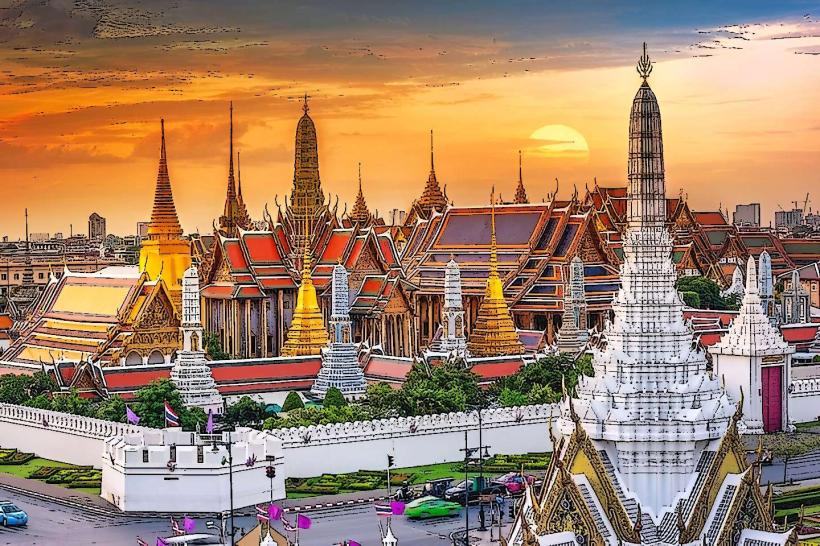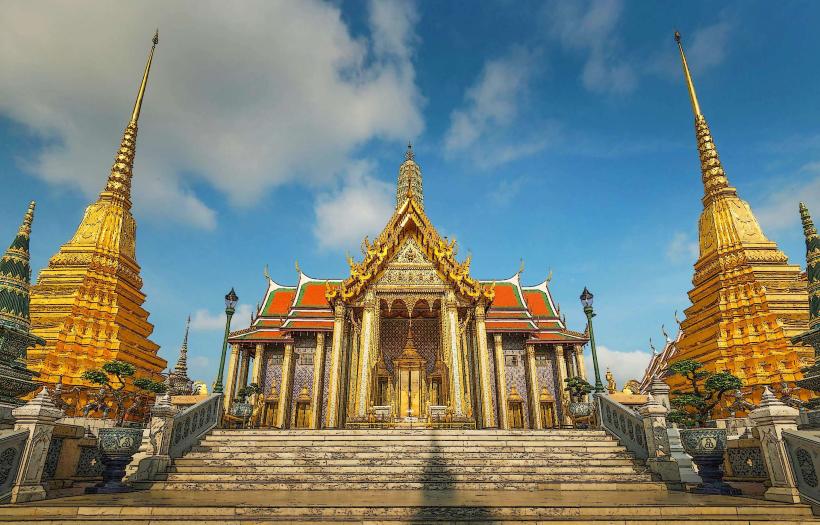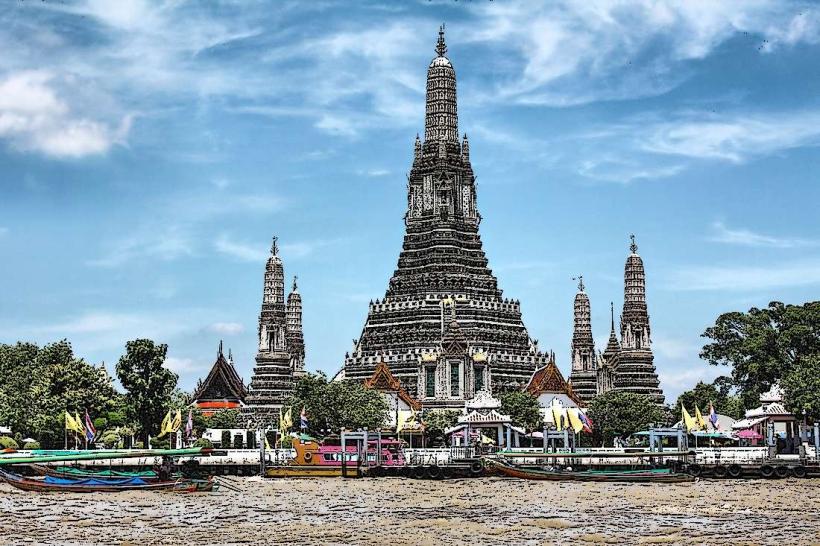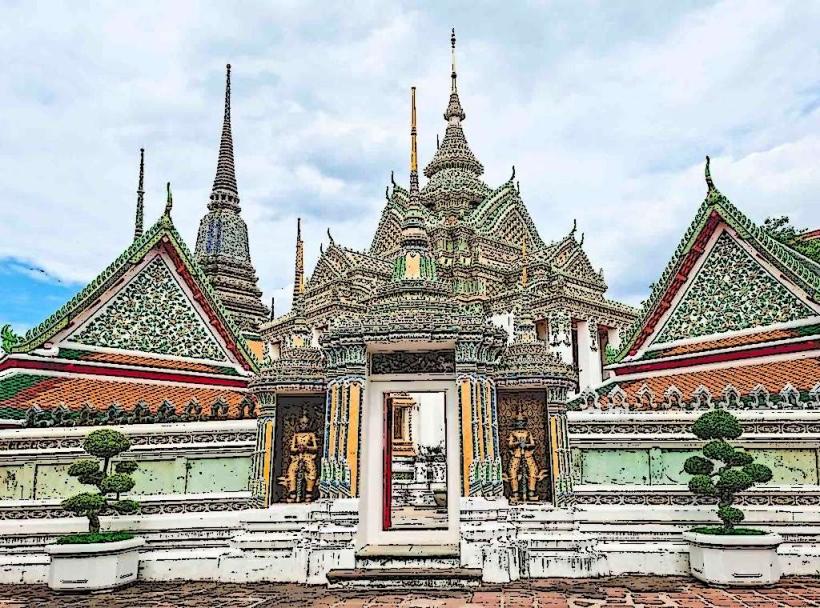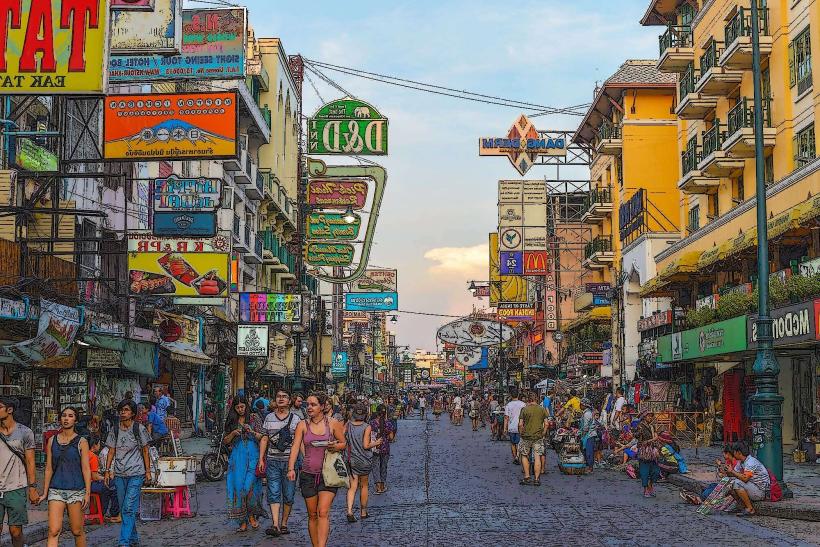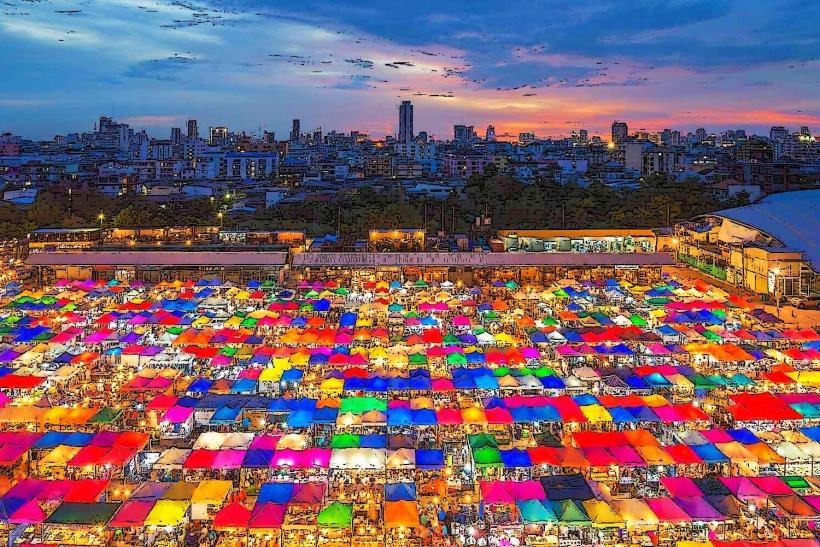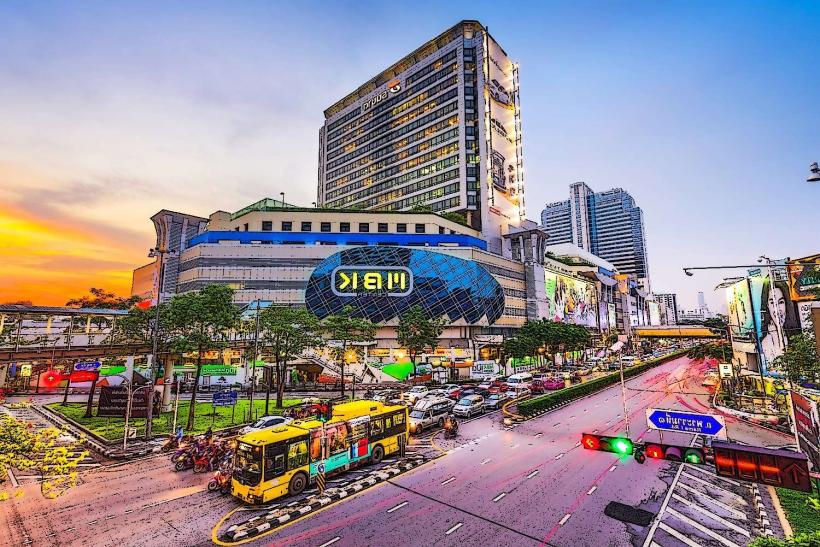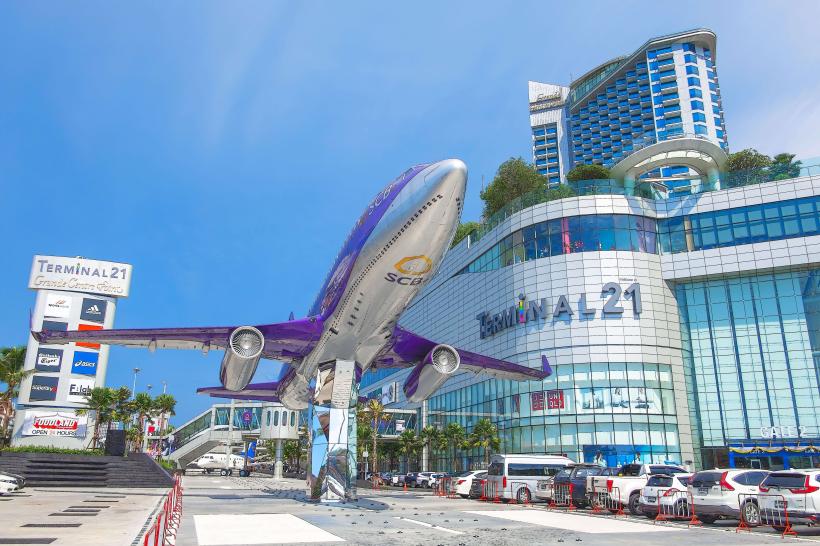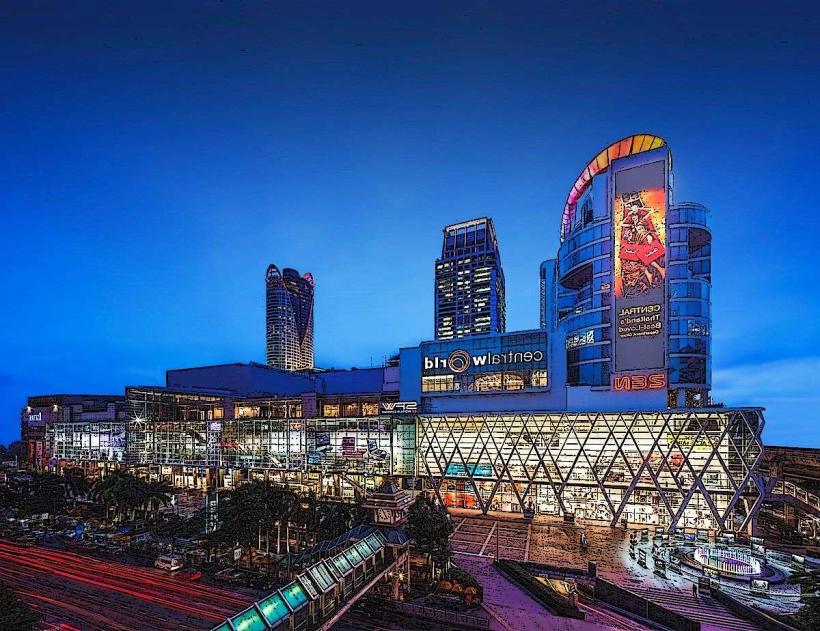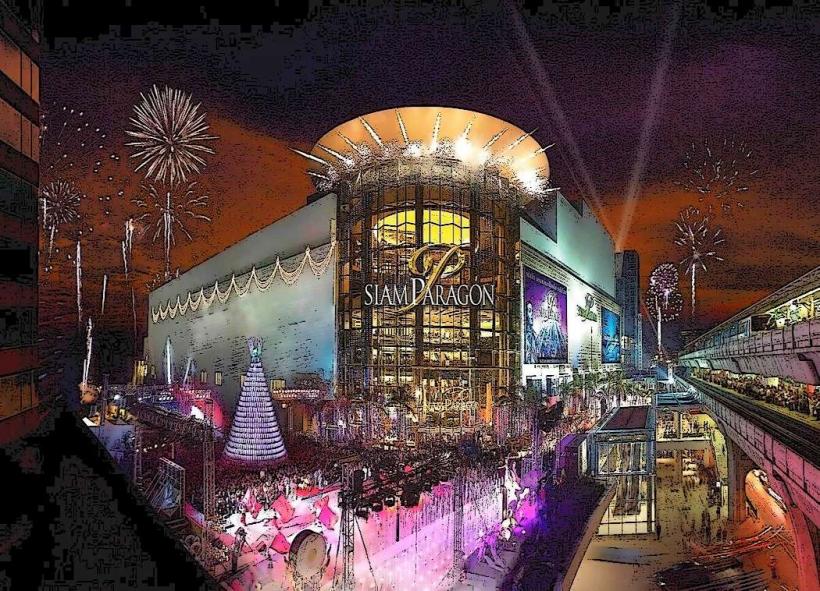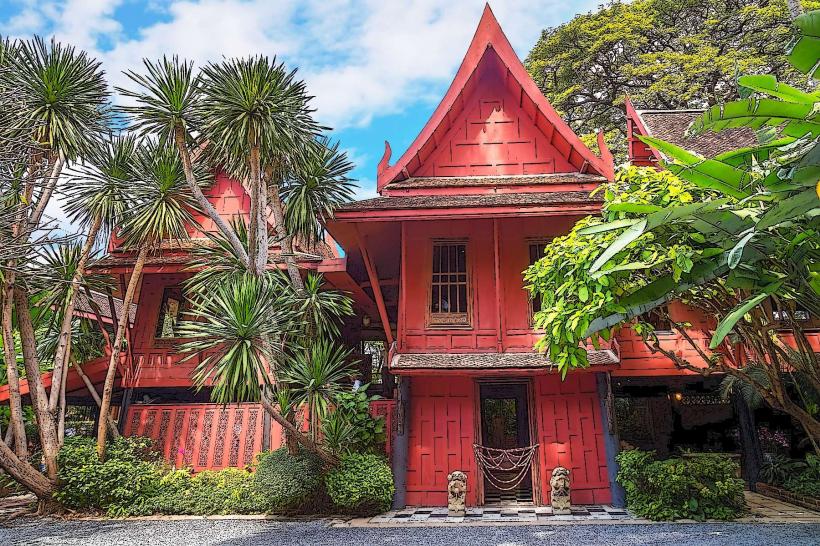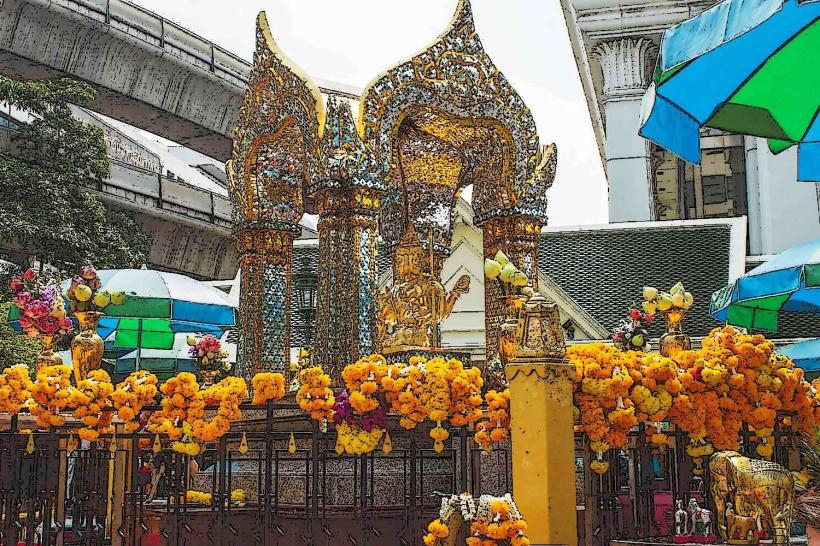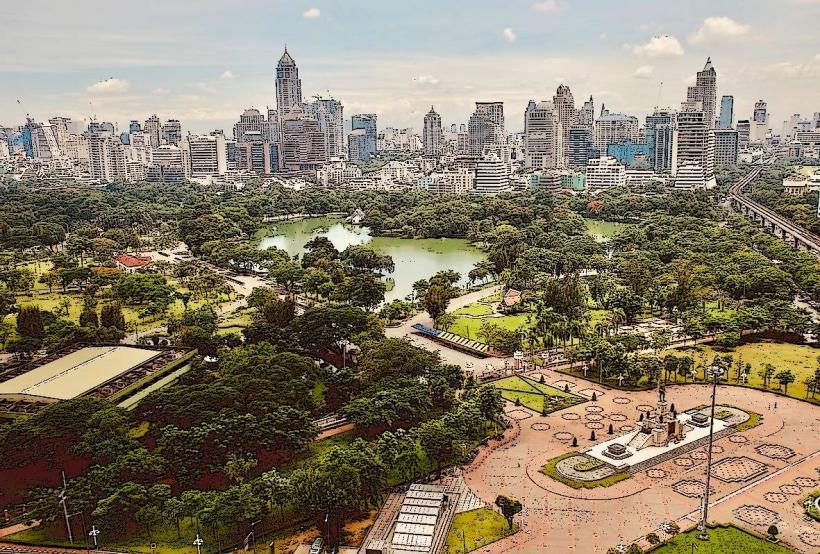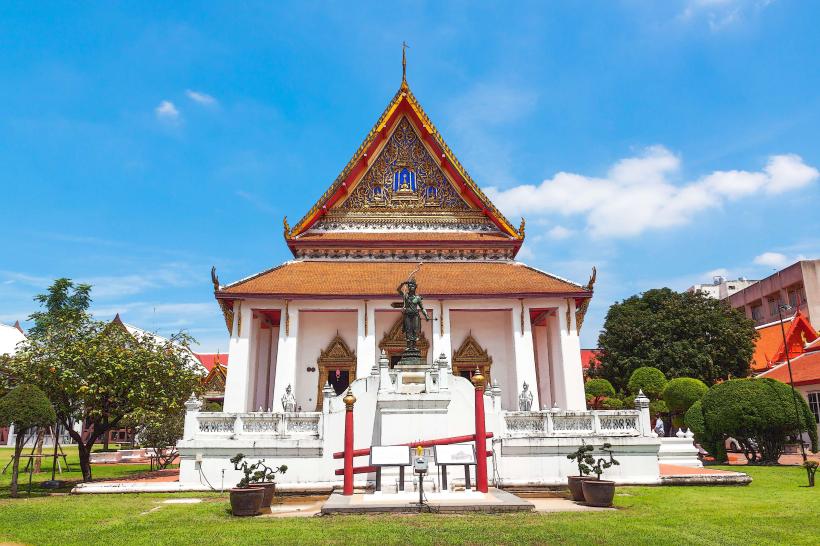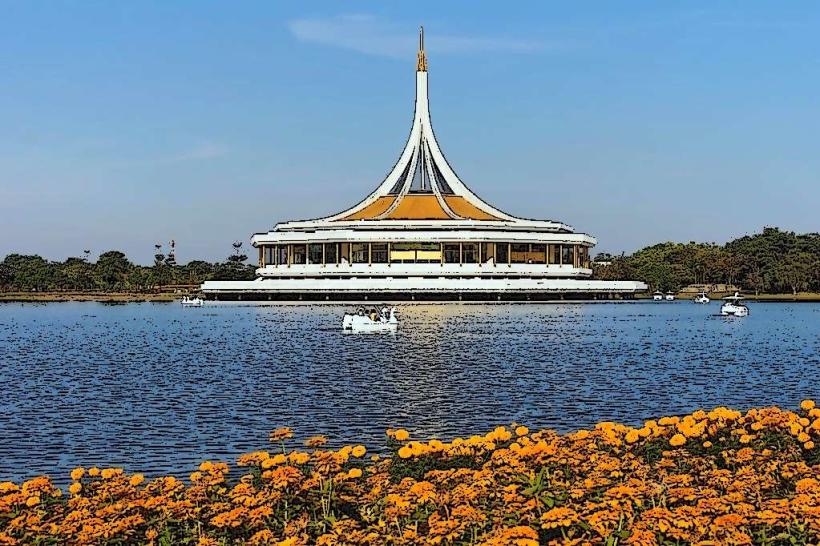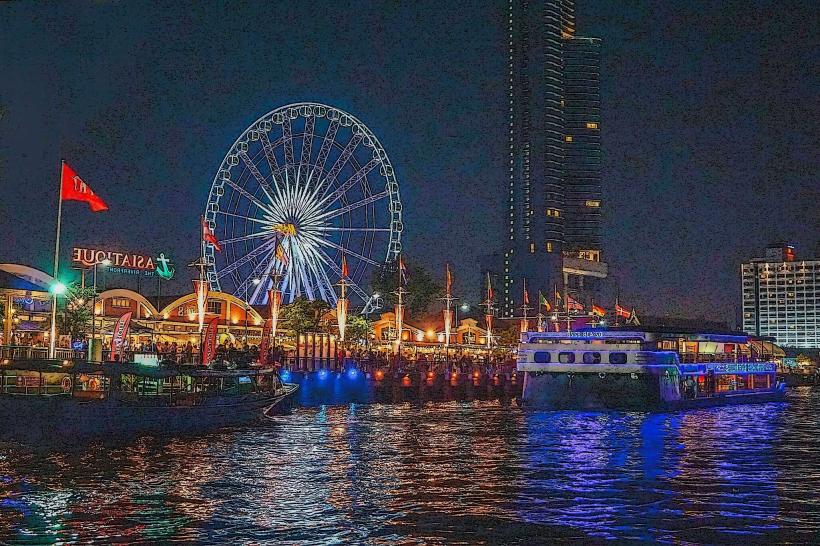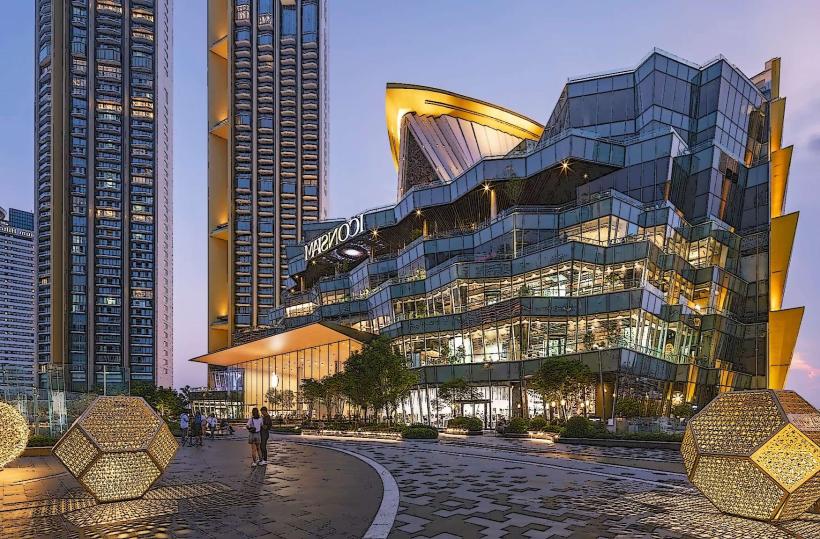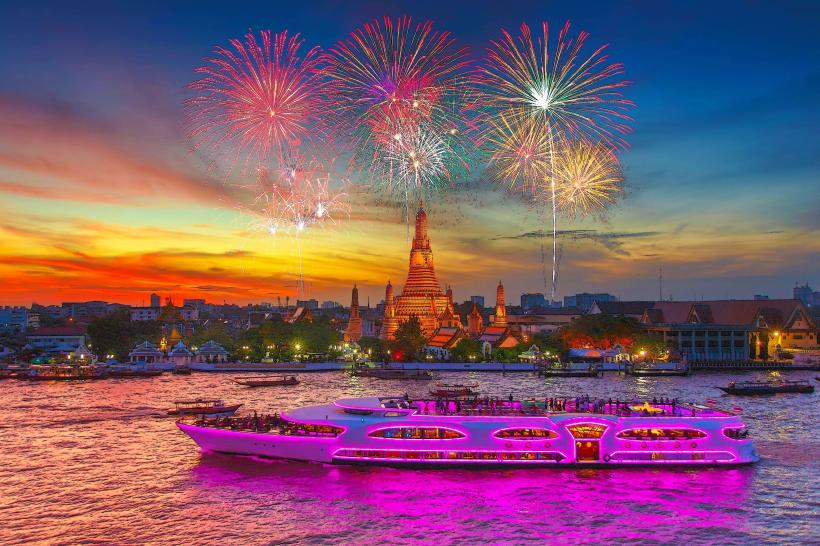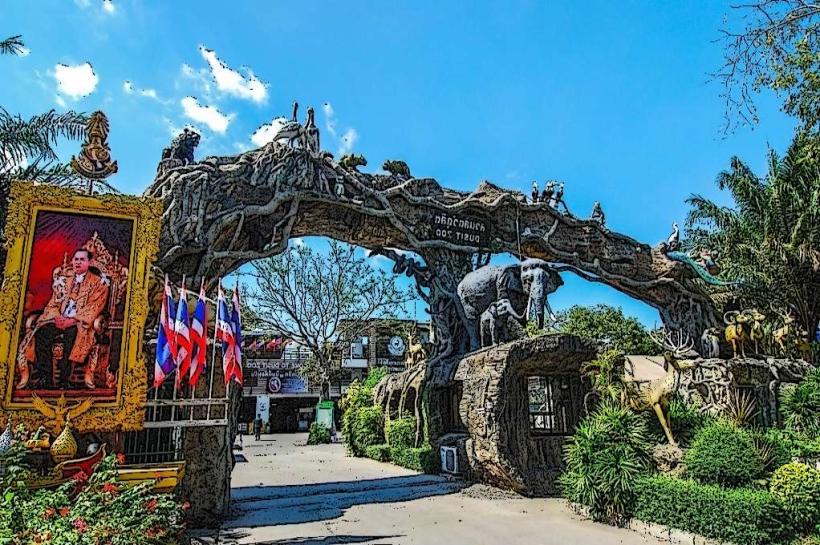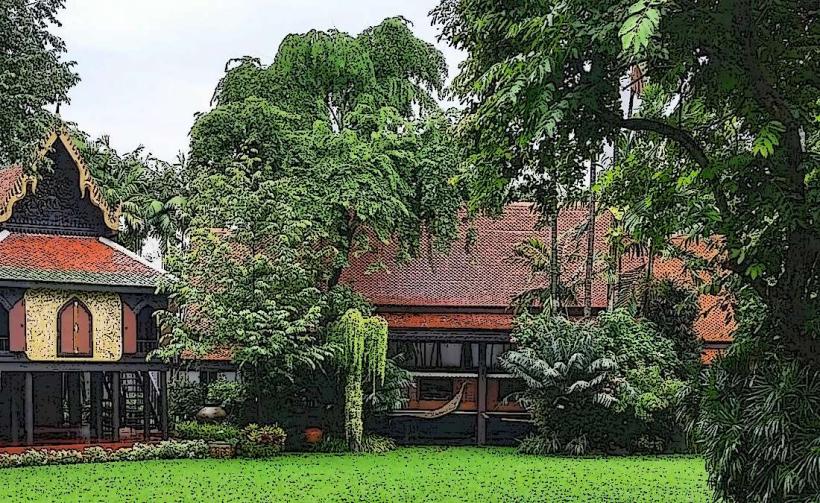Information
City: BangkokCountry: Thailand
Continent: Asia
Bangkok, Thailand, Asia
Bangkok, the capital of Thailand, is a massive megacity of over 11.5 million people (2026 estimate). It functions as the country’s primary political, financial, and cultural hub, situated in the Chao Phraya River delta.
Historical Timeline
Originally a small trading post during the Ayutthaya Kingdom, Bangkok became the capital in 1782 when King Rama I moved the seat of power to the eastern bank of the river to better defend against Burmese attacks. Throughout the 19th and 20th centuries, it modernized rapidly under the Chakri Dynasty, transitioning from a city of canals (Venice of the East) to a vertical metropolis. The shift from absolute to constitutional monarchy in 1932 further solidified its role as a centralized modern capital.
Urban Layout & Districts
Rattanakosin (Old City): The historic heart containing the Grand Palace and major temples.
Sukhumvit: The modern commercial spine, famous for high-end shopping, dining, and nightlife.
Siam: The retail epicenter, home to massive interconnected malls like Siam Paragon and CentralWorld.
Silom & Sathorn: The central business district (CBD) and financial hub, mixing skyscrapers with street food.
Yaowarat (Chinatown): One of the oldest and most vibrant culinary districts in the world.
Thonburi: The quieter western bank, characterized by historic canals and the iconic Wat Arun.
Top Landmarks & Attractions
Grand Palace & Wat Phra Kaew: The former royal residence and the Temple of the Emerald Buddha.
Wat Pho: Known for the massive 46-meter-long Reclining Buddha.
Wat Arun (Temple of Dawn): A riverside porcelain-encrusted spire that is most striking at sunset.
Chatuchak Weekend Market: One of the world's largest outdoor markets, featuring over 15,000 stalls.
Chao Phraya River: The city's main artery; best explored via public ferry or luxury dinner cruises.
Transportation & Infrastructure (2026)
Bangkok has significantly expanded its rail network under the M-Map master plan.
Rail: The BTS Skytrain (Green/Gold lines) and MRT (Blue/Purple/Yellow/Pink lines) provide comprehensive coverage. Recent extensions have improved access to the suburbs and the Muang Thong Thani lakeside area.
Airport Connectivity: Suvarnabhumi (BKK) and Don Mueang (DMK) are both linked to the city via rail (Airport Rail Link and SRT Red Line).
Water: Public river boats remain a vital, traffic-free alternative for traveling between the Old City and the CBD.
Fares: The government has implemented a 20-baht capped fare for several metro lines to reduce the cost of living.
Current Events (January 21, 2026)
Weather: A "cold surge" from China has arrived today, causing a temperature drop of 1–3°C. Morning fog and isolated light rain are expected, with highs of 31–34°C and lows around 22–24°C.
Air Quality: PM 2.5 levels are currently above standard (Orange Level) in Pathumwan and Lat Krabang districts due to weak ventilation. Residents are advised to wear masks outdoors.
Infrastructure: Construction of the Victory Monument Skywalk is in its final stages, with completion scheduled for April 2026.
Economy: The Thai digital economy is forecasted to grow by 4.2% this year, significantly outpacing the general GDP growth of 1.6%.
Climate & Safety
Climate: Tropical monsoon. January is the "cool" and dry season, making it the peak time for tourism.
Safety: Generally safe for travelers. The main risks are petty theft in crowded areas (e.g., Khao San Road) and traffic accidents. Pedestrians should exercise extreme caution as motorbikes often ignore traffic signals.
Local Cost Index (THB)
Street Food Meal: ฿50 – ฿80
Mid-range Dinner: ฿400 – ฿800
BTS/MRT Trip: ฿16 – ฿52 (or ฿20 capped on certain lines)
Craft Beer: ฿250 – ฿400
Facts & Legends
A verified historical oddity: Bangkok's full ceremonial name is the longest city name in the world, beginning with Krung Thep Mahanakhon Amon Rattanakosin... and totaling 168 letters. A local legend concerns the Mae Nak Phra Khanong, a ghost of a woman who died in childbirth while her husband was at war; a shrine dedicated to her in the On Nut area is still visited by thousands seeking protection or luck in the military draft.

